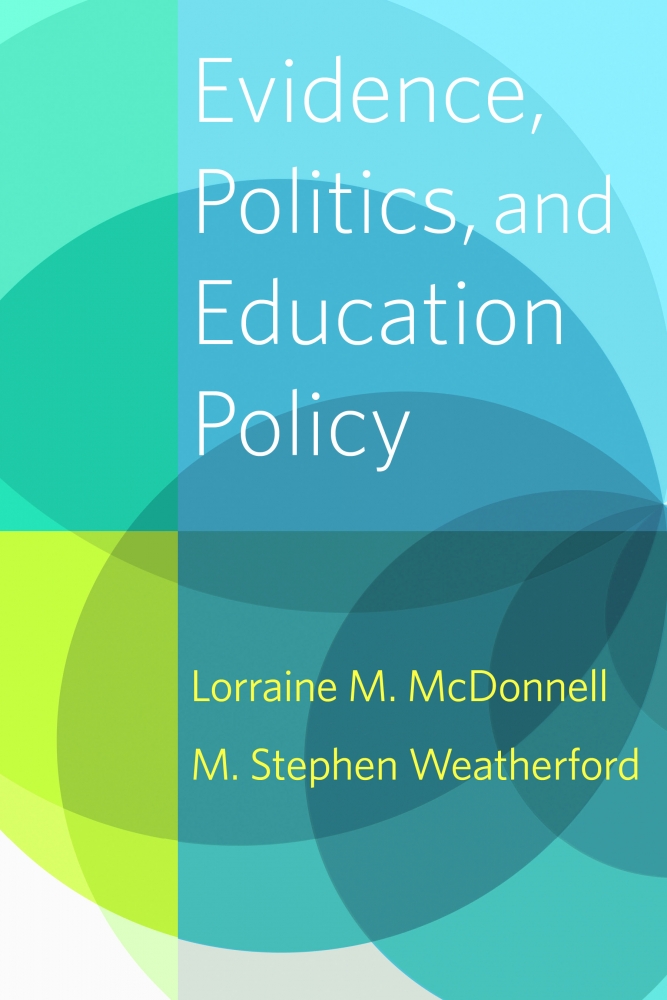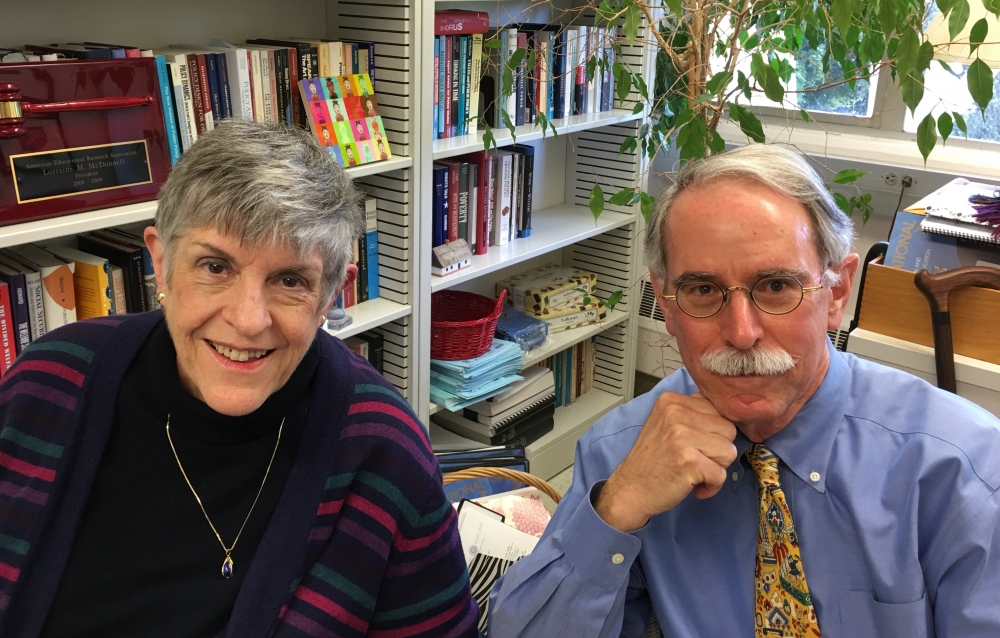
Show and Sell


It’s no secret that there is real tension today between research and policy, especially in education. “Evidence-based” curriculum proposals, for example, may run headlong into objections based on political considerations. What’s a researcher to do?
Lorraine M. McDonnell and M. Stephen Weatherford, both UC Santa Barbara professors emeriti of political science, explore the issue in “Evidence, Politics, and Education Policy” (Harvard Education Press, 2020).
As McDonnell notes, there is no shortage of discussion and hand wringing among academics and researchers about their work being ignored or misused in policy debates.
“Our book is intended to give researchers unfamiliar with the politics of the policy process a more sophisticated understanding of research use in that process,” she said. “What is particularly important is that research is rarely used alone. It is typically combined with the professional expertise of practitioners such as teachers, nurses and first responders; the personal experience of politicians and others; and values and ideas often expressed in symbols and stories.”
To convey research effectively, McDonnell explained, academics need to acknowledge these other types of evidence and how they might enhance or detract from research results. For some researchers, successfully communicating their work requires partnerships with various kinds of “intermediary” organizations such as interest groups or organizations that specialize in policy communication.
Although the book focuses on education policy, it has a particular relevance in the age of COVID-19, McDonnell said.
“Scientific research about virus transmission and vaccines has been critical,” she said. “But the professional expertise of medical clinicians has also been central in media accounts and policy discussions because they can demonstrate the application of scientific knowledge in practice. Similarly, stories about the effects of COVID on families and on businesses are central to discussions of stimulus legislation and to public health communication with the public.”
As the authors note, we live in an age in which calls for research-based evidence compete with “alternative facts” that hamper researchers’ efforts to advocate for effective policies on such crucial topics as health care and climate change.
“If researchers are to be effective in communicating the results of their work and resolving this paradox, they need to develop more sophisticated knowledge of policy and politics,” said McDonnell.



